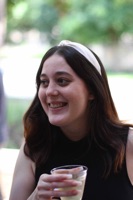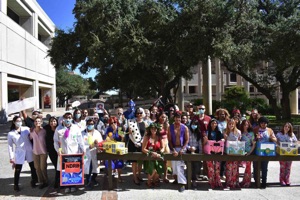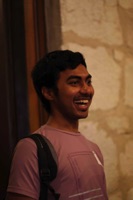
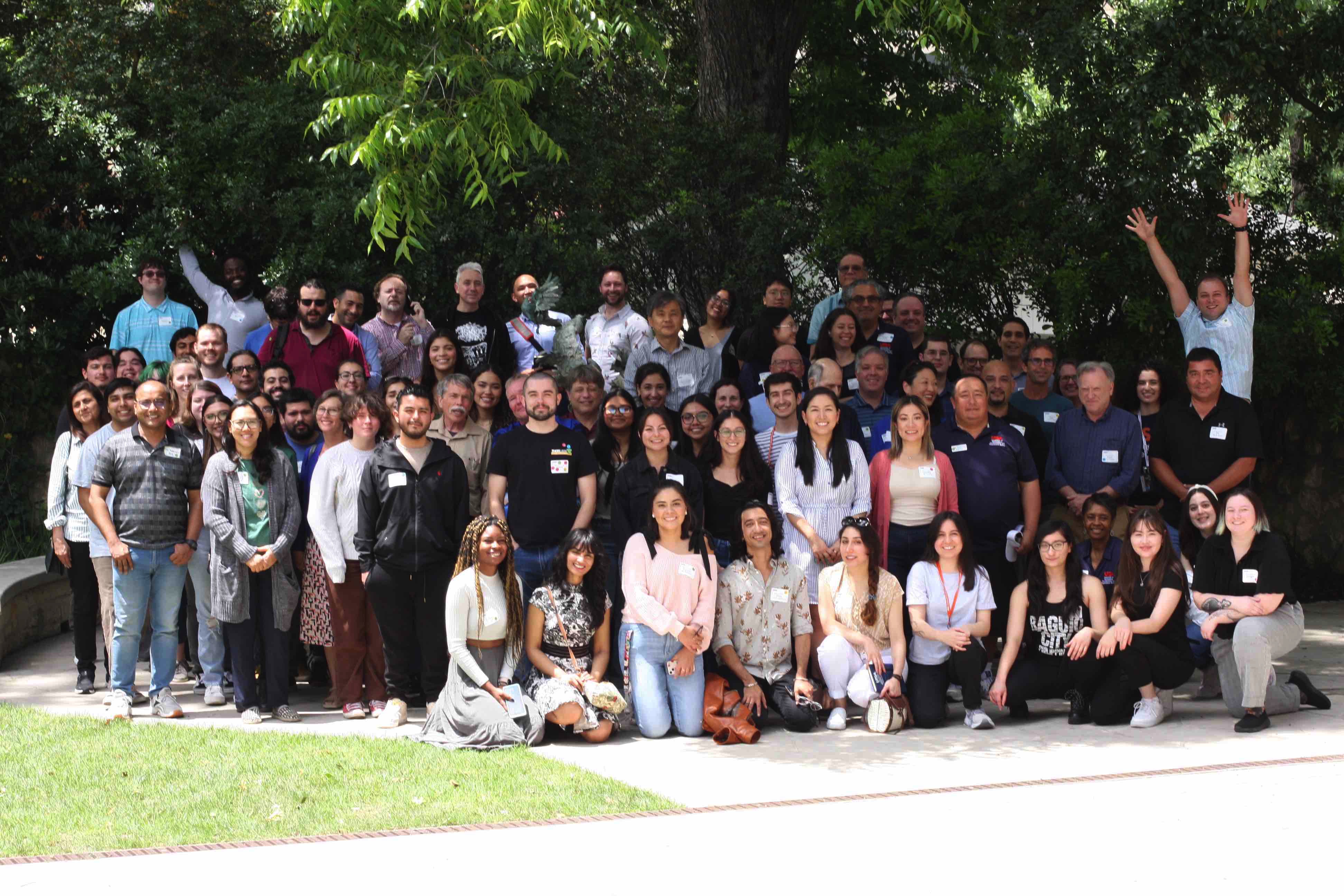

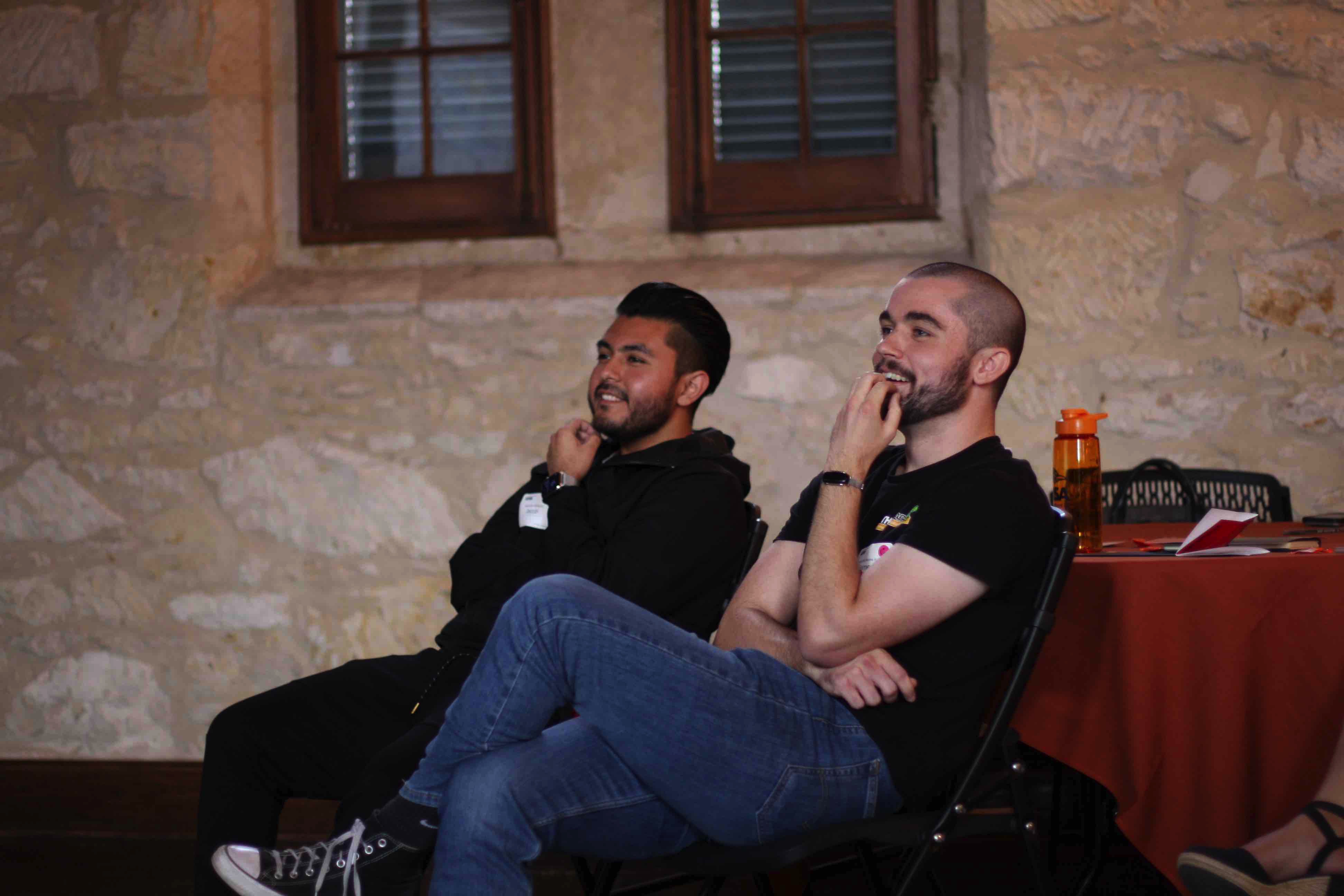
The Neuroscience PhD program at UTSA is an interactive community with an array of research strengths. We provide trainees with cutting-edge research opportunities and professional development to ensure that students achieve their career goals.
Neuroscience PhD Students
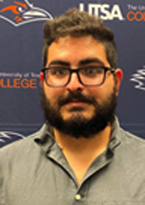
Antonio Allevato
Fourth year student - Wicha lab
Language comprehension requires high-order cognitive functioning to construct a meaningful message from rapid streams of input. The use of prediction based on sentence context allows healthy young adults to process language efficiently. Antonio’s research focuses on using electroencephalography to investigate the level of context used in dynamic listening comprehension under ideal and taxed conditions. The outcome of this research will help to determine how neuro-atypical populations evaluate and integrate linguistic information and communicate with their communities.
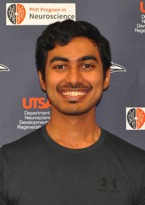
Uchit Bhaskar
Fifth year student - Carless lab
Uchit’s research focuses on the broad aspects of epigenetics, aging, and Alzheimer’s disease (AD). He is currently working in the Carless Lab to establish in vitro human cell models of aging (particularly astrocytes and microglia) that can better reflect late-onset diseases like AD. He will use this and similar existing neuronal models to help understand how changes in DNA methylation could contribute to disease progression, and how cell-cell interactions mediate these processes. Uchit is also involved in utilizing epigenetic editing strategies in stem cell-derived models of AD that could potentially be developed as a tool for ameliorating the disease burden.
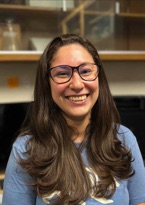

Shrestha ‘Diya’ Datta
First year student
Diya (she/her/hers) is a first year PhD student currently rotating in the Carless Lab. She is interested in researching how synaptic plasticity and genetic variations influence learning, memory, and behavior at the molecular and systems levels relevant to neurodevelopmental and psychiatric disorders.
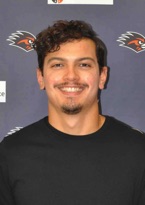
Brandon Garcia
Second year student - Wanat lab
Brandon is interested in understanding the complex interactions between astrocytes and neurons and how they influence rodent behavior. His research focuses on how midbrain astrocytes in the ventral tegmental area (VTA) modulate dopamine neuron activity, particularly in the context of reward and aversive learning.
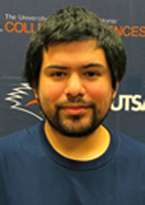
Charles Garcia
Fourth year student - Gamblin lab
Charles's research focuses on studying tau aggregation with the goal of creating tau structures that replicate tau structures found in Alzheimer’s Disease. Different naturally occuring free fatty acids will be utilized to induce tau aggregation. Using thioflavin fluorescence assay, laster light scattering, and electron microscopy, the impact of differing fatty acids on tau aggregation will be compared.

Miranda Gonzales
First year student
Miranda is interested in studying human cognition and the fundamental computations performed by intricate neural circuits. With a background in evolutionary and computational neuroscience, she hopes to explore and build novel modeling tools to further develop cutting-edge theories of how sleep facilitates memory consolidation. Broader career goals include applying sleep & memory research to develop tools which facilitate classroom teaching and to improve education policy in secondary schools.

Morgan Johnston
Fifth year student - Wanat lab
Morgan’s (she/her) research focuses on how stress impacts learning, with a specific interest in corticotropin-releasing factor and dopamine. She is also a passionate advocate for the inclusion of female subjects in neuroscience research and examines how sex and the estrous cycle affects behavior. In addition to her love of neuroscience research, Morgan is also dedicated to science communication and has her own YouTube and TikTok accounts where she strives to make neuroscience research more accessible to the public. Her primary research and professional goals are to expand what is currently known about the female brain, especially in regards to mental health, and to improve access to science education.
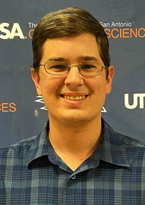
Stephen Jones
Third year student - Savelli lab
Stephen is focused on unraveling the intricate mechanisms underlying the hippocampal formation's pivotal role in spatial cognition. His primary research focus centers on unraveling the intricate roles of place cells and grid cells in the dynamic construction of mental maps that underlie our innate sense of location. Stephen integrates behavioral recordings and electrophysiological data to decode intricate neural computations involved in forming and updating the cognitive map. Additionally, he gains insights by utilizing and refining computational models of place cells to better understand the interactions between place and grid cells.
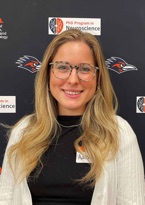
Addison Kanke
First year student
Addison is a new student in the program who is making the transition from working with avian species to rodent species in behavioral models of mood disorders. Her interests currently include investigating the neural mechanisms of anxiety, and understanding how stress affects our behavior.

Aayushma Kunwar
First year student
Aayushma is interested in cognitive aspects of goal-directed behavior and its dysfunction. She is planning to study neuromodulation of the circuitry associated with cognitive functions like adaptive learning, memory function, decision-making, and attention. Currently as a rotation student in the Silviera lab, she is performing whole-cell patch clamp recordings to study the intrinsic physiology of glutamatergic Inferior Colliculus neurons across various developmental ages. Aayushma is also passionate about improving mental health literacy in underserved communities.

Won-Haeng Lee
Sixth year student - Lee lab
There are accumulate studies that suggest the link between brain insulin resistance and Alzheimer’s Disease (AD). However, the pathophysiological role of insulin resistance in AD is not fully understood. My research interest is to understand the cause of brain insulin resistance in AD and its contibution to disease pathogenesis in vivo and in vitro.

Kelly Lozano Ortiz
Third year student - Burgos-Robles lab
Kelly is interested in uncovering the neural circuits of social phobia. Her research focuses on how traumatic social experiences lead to the development of social phobia by investigating the role of the medial prefrontal cortex during social threat learning and how projections from other brain regions, such as the basolateral amygdala, contribute to the development and endurance of this disorder.
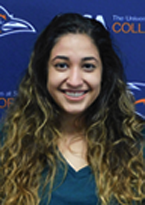
Karina Meyer-Acosta
Sixth year student - Hsieh lab
Karina’s research encompasses how the Alzheimer’s disease genetic risk factor, APOE4, contributes Alzheimer’s disease in the context of neurodevelopment. APOE4 brain imaging studies demonstrate changes in brain structure and function as early as infancy suggesting that APOE4 may influence neurogenesis to contribute to later AD. Using 3D brain organoids, Karian explores how APOE4 alters neurogenesis and neuronal function

Ashley Miller
First year student
Ashley is a first-year student interested in studying the neurological basis of motivation, learning, and addictive behavior in rodent models. She is broadly interested in the striatum and the role of dopamine, and is currently working on a project to explore how upregulating astrocyte activity in the ventral tegmental area impacts rat preference and self-administration of cocaine.

Sara Mirsadeghi
Second year student - Hsieh lab
The Hsieh lab studies mesial temporal lobe epilepsy (mTLE), the most common intractable epilepsy in adults, and genetic epilepsies, a group of rare neurodevelopmental disorder characterized by early onset seizures. In rodent models of mTLE, adult neural stem cells proliferate, migrate aberrantly, and distrupt the hippocampal circuitry, and in turn, contribute to seizure activity. In one type of genetic epilepsy, ARX is a transcription factor important for cortical development and interneuron migration, i.e., polyalanine (pAla) expansion mutation in ARX contributes to changes in both cortical and subpallial development. In these projects, Sara is going to unravel the network mechanisms underlying acquired and genetic epilepsy associated with ARX pAla mutations. She will use an integrated approach to investigate rodent and humanneurogenesis both in vitro (3D brain organoids) and in animal models utlizing electrophysiological techniques including chemogenetics/optogenetics, Ca2+ imaging, silicone probe and whole cell patch clamp recording.
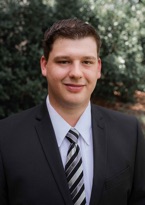

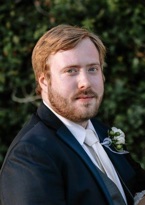
Ryan Wood
Fifth year student - Macpherson lab
Many common chemotherapeutic drugs can disrupt the sense of taste, leading to loss of appetite, nutritional deficiencies, and a diminished quality of life, particularly when taste changes persist after treatment ends. Cyclophosphamide (CYP), an alkylating agent, affects taste sensitivity by damaging mature taste receptor cells (TRCs) and interfering with the regeneration of TRCs from taste progenitor cells. Ryan's current research is focused on examining the impact of chemotherapy on the gustatory fibers that innervate the taste buds. Given that taste function is essential for the health and survival of animals, understanding these effects is crucial
Recent Alumni
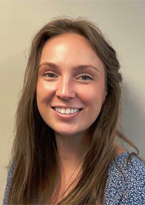
Nicole Cook, PhD
Mentor: Isabel Muzzio, PhD
Dissertation: The Auditory Cortex: Neural Representations and Dynamics of Recent and Remote Fear Memories (Fall 2024)
Current Employment: Postdoc, US Army Medical Research in Chemical Defenses
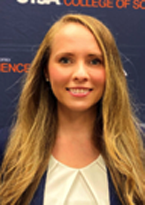
Tara Flaugher, PhD
Mentor: Nicole Wicha, PhD
Funding: Department of Defense: SMART Award; Pat Tillman Foundation: Tillman Scholar Award
Dissertation: Comprehension after Concussion: An Analysis of the Impact of Mild Traumatic Brain Injury and Related Symptoms on Sentence and Word-Pair Comprehension (Spring 2024)
Current Employment: Naval Information Warfare Center - Pacific
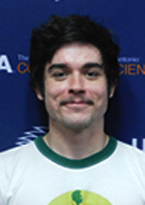
James Jones, PhD
Mentor: Charlie Wilson, PhD
Funding: National Institutes of Health - F31 NS127499
Dissertation: Synaptic Inhibition of the External Globus Pallidus (Fall 2023)
Current Employment: Postdoc, Mao Lab, Oregon Health Sciences University

Kannan Thangamani, PhD
Mentor: Guoquan Zhang, PhD
Dissertation: The Host Pathogen Interaction between Human Neutrophils and Coxiella burnetii - An Intricate Webbed Affair (Fall 2023)
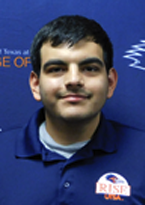
Matthew Lopez, PhD
Mentor: Isabel Muzzio, PhD
Dissertation: Memory Consolidation: How Reliable are our Memories (Summer 2023)
Current Employment: Postdoc, Choi Lab, Mayo Clinic
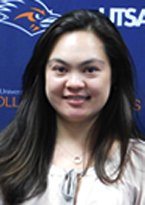
Celia Gagliardi, PhD
Mentor: Isabel Muzzio, PhD
Funding: National Institutes of Health - F31 EY031582
Dissertation: Neural Mechanisms of Spatial Reorientation: How We Regain Our Bearings When Lost (Summer 2023)
Current Employment: Postdoc, Redish Lab, University of Minnessota

Bahram Pahlavan, PhD
Mentor: Fidel Santamaria, PhD
Dissertation: The ghost inside the machine: Intrinsic excitability modulates neuronoal function and synaptic integration (Summer 2023)
Current Employment: Postdoc, Santamaria Lab, UTSA

Erin Hurley, PhD
Mentor: Jenny Hsieh, PhD
Dissertation: Not(ch) Just Development: Role of Notch Signaling in Neurodegeneration (Fall 2022)
Current Employment: Scientist, Insmed
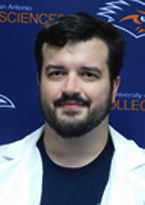
Bryan Fowler, PhD
Mentor: Lindsey Macpherson, PhD
Dissertation: A Modest Petrosal: Elucidating Function and Molecular Identity in the Understudied Peripheral Taste Ganglion (Summer 2022)
Current Employment: Assistant Professor of Instruction, UTSA
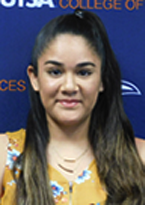
Vanessa Cerda, PhD
Mentor: Nicole Wicha, PhD
Funding: National Institutes of Health - F99/K00 NS124178
Dissertation: Two Times Four = Dos Por Cuatro (Summer 2022)
Current Employment: Postdoc, Booth Lab, Vanderbilt

Amandine Grenier, PhD
Mentor: Nicole Wicha, PhD
Dissertation: The meaning of Multiplication: Electrophysiological Evidence of Semantic Memory Access and Organization in Children (Spring 2022)
Current Employment: Postdoc, Carless Lab, UTSA
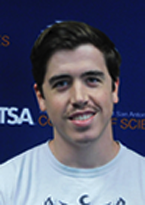
Matthew Wood, PhD
Mentor: Nicole Wicha, PhD
Dissertation: Challenging the Gold Standard in Lifespan Cognition Neuroscience: Electrophysiological Studies of How We Do Arithmetic as We Grow and Comprehend Sentences as We Age (Spring 2022)
Current Employment: Data scientist, Northside Independent School District
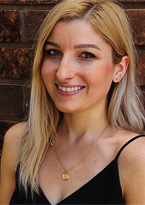
Merridee Lefner, PhD
Mentor: Matt Wanat, PhD
Funding: MindScience Foundation
Dissertation: The Neural Correlates of Acquiring and Updating Reward Value (Fall 2021)
Current Employment: Postdoc, Moghaddam Lab, Oregon Health Sciences University

Jessica Perkins, PhD
Mentors: Carlos Paladini, PhD and Charlie Wilson, PhD
Dissertation: Distinct Subthreshold Signatures of Midbrain Dopamine Neurons Drive Firing Patterns during Noxious Events (Fall 2021)
Current Employment: Postdoc, Khaliq Lab, National Institutes of Health
Student life and outreach
The graduate school experience isn't only about research. Students in the program have fun at UTSA, socialize outside of the lab, and volunteer within the community. See the list of student recommendations for housing, activities, restaurants/bars, doctors, and more.
